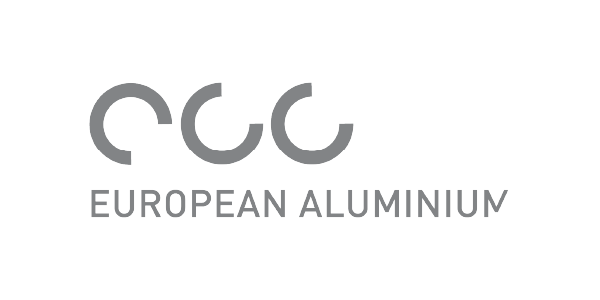Turning residues of the aluminium industry into resources
HYBRID EVENT
10 October 2022 Athens – Radisson Blue Hotel
Background
One of the most significant challenges of primary aluminium production is related to the management of the Bauxite Residue (BR) which is resulted by alkali treatment of bauxite subjected to the Bayer process. It is estimated that approximately 160 Mt of BR are produced worldwide, compared to about 7 Mt produced in Europe. The cumulative stockpiled level in Europe is >250 Mt (dry matter).
Today, only 3% of the annual production is utilised in cement, iron production and/or other applications, whereas the rest of it is landfilled in proper disposal area.
Nevertheless, BR and especially European BR (originated from European bauxites) contains significant amounts of valuable elements as well as considerable concentrations of critical and industrially important elements (Sc, Ga, V, Cr, REEs) constituting an untapped secondary source of Critical Raw Materials (CRMs)[1],[2].
Another important industrial residue throughout the aluminium value chain consists of the salt slag produced by the recycling aluminium industry following the use of salt flux in rotary furnaces. Such salt slag contains as well some valuable elements.
This workshop aims to demonstrate new processing routes for those industry residues viable from a technological/financial point of view and acceptable to the society, which will also support a greener and more sustainable future for Europe.
Scope and Objectives of the Workshop
This 1-day workshop is organised on Monday 10 Oct by European Aluminium under the framework of EU RemovAL project. To better serve the aluminium industry, it is organised back-to-back with the 40th International Conference and Exhibition ICSOBA 2022 and the 4th International Bauxite Residue Valorisation and Best Practices Conference (BR2022) which akes place from Tuesday 11 Oct till Friday 14 Oct
Its main goal is to present innovative processing routes turning BR and other aluminium industry residue into a valuable resource. In this context, cross-fertilisation opportunities between EU projects and industry as well as technological and non-technological enablers for the successful deployment of relevant innovations, complementary to the articles presented at ICSOBA and BR conference will be discussed.
The workshop will be articulated between three (3) sessions where relevant topics and the various outcomes of EU projects will be presented, followed by a panel discussion session where panellists will discuss key aspects of industrial residues (notably BR) and its possible valorisation as a valuable resource. A panel discussion will follow, where speakers will specifically address the challenges for the industrial deployment of key RemovAL technologies.
The Workshop is freely accessible, and the deadline for registration is 3 October.
Only registered participants will have access to the workshop and the informative material.
[1] Ujaczki et al. 2018, Re-using bauxite residues: benefits beyond (critical raw) material recovery, J. Chem. Technol. Biotechnol., https://doi.org/10.1002/jctb.5687
[2] European Commission, 2018, Report on Critical Raw Materials and the Circular Economy, https://doi.org/10.2873/167813
10 OCT
PROGRAMME
(*) all times are indicated in EEST (time in Greece). To check the time in your own time zone, please use the time zone converter
9:30 – 9:40
WELCOME
Welcome by Paul Voss, European Aluminium & Efthymios Balomenos, RemovAL Coordinator
9:40 – 11:10
Session 1: Bauxite residue valorisation: from global to European perspective
Chair: Grigorios Paschalis, MYTILINEOS
- Bauxite and alumina: A global perspective, Lavinya Kugaswaran, International Aluminium Institute
- Roadmap for bauxite residue valorisation at Alunorte, Marcelo Montini, HYDRO
- The aluminium value chain under the Horizon framework: Developing a sustainable future, Christian Leroy, European Aluminium
11:10 – 11:40
networking COFFEE BREAK
11:40 – 13:15
Session 2: Turning aluminium industry
residues into resources: Outcome from EU collaborative projects
Chair: Laurent Birry, Rio Tinto
- Characterisation and novel technologies for the sustainable extraction of CRMs from mining activities residuals (INCO-PILES), Dimitrios Sparis, NTUA
- Establishing an innovative sustainable strategy for selective biorecovery of critical raw materials from secondary resources
(BIORECOVER), Paula Vasconcelos Morais, University of Coimbra - Transforming by-product of the recycling of aluminium salt slag into a refractory material (LIFE BAUXAL-II), Héctor Trigueros Fernandez, BEFESA
13:15 – 14:30
Lunch Break
14:30 – 16:15
Session 3: RemovAL innovative processing routes for Bauxite Residue
Chair: Bruno Salgado Linares, Alcoa
- Overview on the EU RemovAL project for near zero-waste processing in the alumina refineries, Efthymios Balomenos, MYTILINEOS
- Final results of LCA and exergy analysis on RemovAL technologies,
Johan Berg Pettersen, National Technical Norwegian University - Focus on the current EU legislative framework for implementing the RemovAL solutions, Konstantinos Kollias, European Aluminium
- Learnings from feasibility study of RemovAL Bauxite Residue valorisation technologies, Anastasios Kladis, AdMiRIS
16:15 – 16:45
Networking Break-out session
16:45 – 17:45
Panel Discussion: Challenges on full scale valorisation of BR
Chairs: Dimitrios Panias, National Technical University of Athens & Bijoy Satpathy, ICSOBA
- Efthymios Balomenos, MYTILINEOS
- Kjell Blandhol, Elkem ASA
- Abbas Khan, ZaaK Technologies GmbH
- Tobias Hertel, KU Leuven
17:45 – 18:00
Debrief and main conclusions by the chairs
Closure by Efthymios Balomenos, RemovAL Coordinator & Paul Voss, European Aluminium

